- Where We Work
- Africa
- African Union
- Power Africa
- Trade and Investment
- Angola
- Benin
- Botswana
- Burkina Faso
- Burundi
- Cameroon
- Central Africa Regional
- Central African Republic
- Chad
- Côte d'Ivoire
- Democratic Republic of the Congo
- Djibouti
- East Africa Regional
- Eswatini
- Ethiopia
- Ghana
- Guinea
- Kenya
- Lesotho
- Liberia
- Madagascar
- Malawi
- Mali
- Mauritania
- Mozambique
- Namibia
- Niger
- Nigeria
- Republic of the Congo
- Rwanda
- Sahel Regional
- Senegal
- Sierra Leone
- Somalia
- South Africa
- South Sudan
- Southern Africa Regional
- Sudan
- Tanzania
- The Gambia
- Uganda
- West Africa Regional
- Zambia
- Zimbabwe
- Asia
- Europe and Eurasia
- Latin America and the Caribbean
- Middle East
- Mission Directory
Speeches Shim
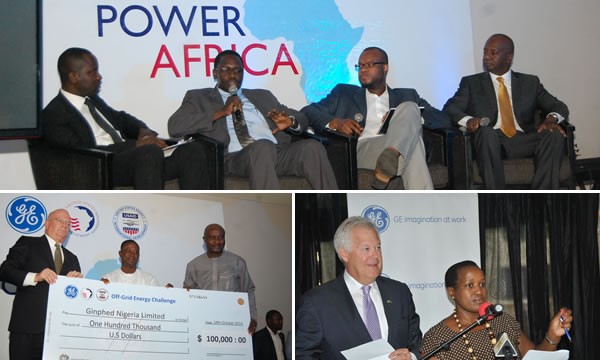
By Claudia Schwartz, US African Development Foundation
More energy entrepreneurs are increasing electricity access across Africa, as winners of Power Africa’s “Off-Grid Energy Challenge.” The U.S. African Development Foundation (USADF), USAID, and General Electric have awarded 22 companies with $100,000 each to expand their renewable energy businesses and reach more people in underserved communities. This second round of the competition attracted nearly 300 applicants from the six eligible countries of Ethiopia, Ghana, Kenya, Liberia, Nigeria, and Tanzania.
The grant winners are harnessing energy from solar, hydro-electric, and biofuel sources for productive uses. These innovators are setting up micro-grids, selling electricity appliances, and creating businesses from renewable energy sources, that wouldn’t otherwise exist. USADF expects over 30,000 households will benefit from this work.
For example, Kenya’s Pfoofy Power and Light Limited is creating nearly 50 jobs and serving a market need for transportation, by expanding its solar charging station for electric motorcycles. Two 10-kilowatt stations will power 40 electric motorcycles at various locations and Pfoofy also will train and employ drivers. Customers will be charged a flat fee per ride, which will be less expensive than the current fare charged by diesel and gas motorcycles. Farmers moving their produce, individuals travelling from town to city, and others will take nearly 12,000 rides on these electric motorcycles in the first year. Meanwhile, Nigeria’s Quintas Renewable Energy Solutions is developing a 500 kilowatt biomass plant in Ofosu which is in the southeastern part of the country. This facility will make use of the community’s agricultural waste and forestry residue, including sawdust from four area sawmills. Benefitting from this venture will be 230 households, 30 commercial enterprises, four cottage industries, and four schools. Quintas has leveraged the Off-Grid Energy funding to more than double its working capital from outside investors.
In Ghana, Solar Light Company is targeting Africa’s traditional markets to provide another business opportunity to small-scale retailers and informal street vendors. For example, the “Sunana” portable solar-powered mobile charging system means customers and vendors can charge their cell phones while they shop and work, and individuals can earn money by offering this needed service. The prototype Sunana unit boosts a solar panel which can be “worn” on top of a market stall or more modest umbrella. It comes with components for charging mobile phones and attaching LED lights. Solar Light Company will build and assemble in country an initial set of prototypes for the local market.
Women agro-processors in the palm and palm kernel oils business in central Ghana also are benefitting from the Challenge. These entrepreneurs from KITA would need access to the grid or expensive generators to use modern processing equipment with electric motors. Instead, they manually process palm oil, expending a lot of time to produce a small amount of lower quality oils. Some women walk up to four miles to the nearest grid-connected town to use electricity for cracking and milling, cutting into their active production time every day.
Now, KITA will install a 20 kilowatt biomass gasifier to produce electricity to power a palm kernel oil expeller, palm kernel cracker, and palm oil squeezer, providing more than 70 women will the opportunity to produce more palm oil, of a higher quality palm oil, and earn more money.
The Challenge has also funded a biogas venture in northwestern Ethiopia, with the Organization for Rehabilitation and Development (ORDA) in Amhara, near Lake Tana. ORDA will train both men and women from 420 households to operate mini-biogas plants. By concurrently introducing husbands and wives to the benefits of using biogas, the men will be better able to appreciate the immediate benefits of reducing the time women spend gathering wood for fuel and of improving the air quality inside their homes.
The 22 Off-Grid Energy Challenge grant winners demonstrate the potential for African companies to expand energy access to families and small enterprises in rural and peri-urban communities not served by the traditional grid. For businessmen and women in these areas, including drivers, woodcutters, street vendors and more, affordable, reliable access to renewable energy that is locally available can create new opportunities for them and improve people’s lives on a daily basis. The combined efforts of USADF, USAID and GE, in identifying and supporting these efforts is powering business opportunities and bringing light to more communities in sub-Saharan Africa.
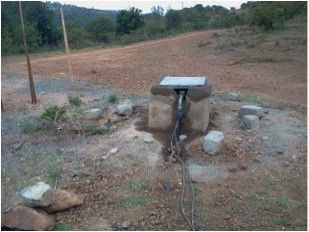
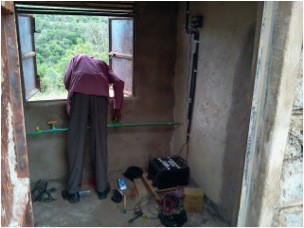
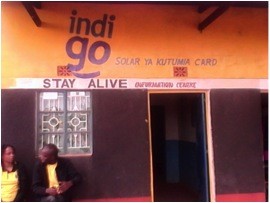
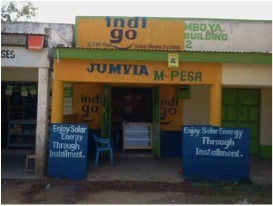
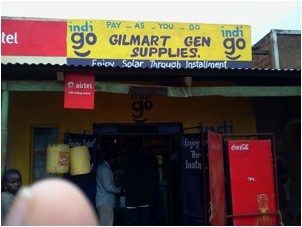

Comment
Make a general inquiry or suggest an improvement.